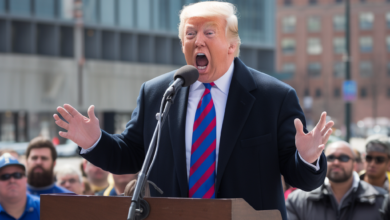
The United States of America v. Donald J. Trump has emerged as a defining moment in American history, challenging the very essence of the nation’s democratic system. The 45-page indictment presented on Tuesday signifies an unprecedented and profound turning point, setting the stage for a trial of a former president accused of attempting to dismantle the country’s democratic foundations.
At the core of the indictment lies the allegation that Donald Trump was determined to retain power despite losing the 2020 election, thereby undermining the peaceful transfer of power that has been a hallmark of the nation since its founding. Special counsel Jack Smith’s charges against Trump carry enormous weight as they strike at the heart of America’s constitutional principles.
What do these charges mean?
Trump, a prominent contender for the GOP nomination and closely matched with President Joe Biden in hypothetical polls, has pleaded not guilty to the other two cases against him. These cases involve business fraud charges related to hush money payments and alleged mishandling of classified documents. The former president maintains his innocence in connection with the 2020 election.
The immediate aftermath of the indictment witnessed fierce reactions from Trump’s supporters, who saw it as an example of “election interference.”
The campaign statement issued by Trump’s team sought to shift the focus onto the Biden administration and portrayed the indictment as a partisan persecution akin to historic authoritarian regimes. Such inflammatory rhetoric only served to deepen the already strained political divisions in the country.
The indictment’s release has undoubtedly intensified an already polarized political landscape.
Congressional Republicans, while dismissing the evidence presented by Smith, have suggested that the indictment is an attempt to deflect attention from questions raised about President Biden’s son’s business activities. However, they have yet to provide concrete evidence implicating the current president in any wrongdoing.
Some may question whether putting the nation through such a politically charged ordeal is in the best interest of the country. However, failing to hold accountable an attempt to subvert the will of voters would set a dangerous precedent and cast doubt on the resilience of American democracy itself.
The trial of a former president serves as a powerful reminder that the principles upon which the nation was founded are not immune to challenge. While the indictment may amplify divisions and bitterness within the nation, it also presents an opportunity to reinforce the importance of upholding democratic values and the rule of law.
Regardless of political affiliations, Americans must recognize that the prosecution of such a case is crucial for preserving the integrity of their democracy. By addressing the alleged plot to undermine the election’s outcome, the nation sends a message that no individual, regardless of their status or political influence, is above the law.
Only by doing so can the nation navigate through this challenging period and emerge stronger, reaffirming its commitment to the ideals that have guided it for centuries.
In conclusion, “The United States of America v. Donald J. Trump” marks an extraordinary moment in the nation’s history. The trial of a former president for attempting to undermine the democratic process brings to light the resilience of American democracy and its commitment to upholding the rule of law. While it may intensify political divisions, it also presents an opportunity for the nation to reaffirm its dedication to the principles that have guided it since its inception. The outcome of this trial will undoubtedly shape the trajectory of the nation’s political landscape for years to come.





